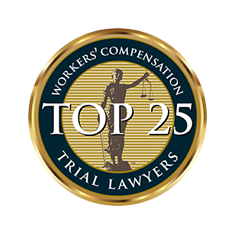Is surveillance of injured workers allowed under the law? Yes. As long as the surveillance company is not on your private property. Why is surveillance done? Because the employers and insurers want to see if an injured worker is doing any activities that are inconsistent with the purported injuries.
Will you be able to review the surveillance video and report? Absolutely. If the insurer or employer wishes to use the surveillance as evidence in your Pennsylvania Workers’ Compensation case, you will have the right to review it to 1) see if it’s in fact you depicted in the video and 2) explain what you were doing.
I get surveillance videos approximately ten times per year. However, it is rarely effective in damaging my cases. As I always note, most people are honest and are doing activities consistent with what’s reported to the doctors. I always tell my clients that just because you are on video carrying coffee and bread while walking out of a convenience store doesn’t mean you’re able to do your pre-injury job for eight hours- a job that may require much more significant physical exertion such as heavy lifting, bending, twisting, etc.
I have many clients who actually catch the surveillance company spying on them- some clients have even called the police- to be sure that it wasn’t something or someone with bad intentions. However, in most cases, the surveillance is done effectively in the sense that the injured worker isn’t aware it’s taking place.
If you have been given surveillance video or reports by your Pennsylvania Work Comp Attorney, make sure to review it. I have had several cases where the person depicted was not my client, but in fact a sibling or a parent who just happens to look like my client. Don’t assume it’s you until you actually confirm it.
Many clients will ask me, “Should I stay inside as my case is progressing?” The answer, in my opinion is no. Do what you can do. In 99.9% of cases, the injured worker is not claiming that they literally cannot move. If your job requires lifting heavy boxes all day, then sitting on a lawnmower and mowing your grass isn’t inconsistent with being unable to do your job. Everything has to be put into context. There is no rule stating that you cannot go out to a movie or dinner merely because you’re on, or seeking workers’ compensation benefits.
For more information about surveillance in Pennsylvania Workers’ Compensation cases, call Certified PA Work Comp Attorney Michael W. Cardamone 7 days a week at (267) 651-7945 or email myphillyworkerscomp@gmail.com
The Cardamone Law Firm, LLC
100% Work Comp; 100% For Injured Workers
This issue arises in many cases. Workers’ Compensation benefits in Pennsylvania can be attached for payment of a support order. Act 109 of 2006 made a change to the Domestic Relations Act to state that support which is delinquent under a payment schedule established by a court is a lien against the net proceeds of any monetary award.
So what is a “monetary award”? It is defined as any portion of a settlement paid as a lump sum as a Workers’ Compensation or Occupational Disease Act award. It does not include a lump sum payable vis-a-vis a structured settlement annuity.
What does “net proceeds” mean? It is defined as monies in excess of $5,000 payable to the employee after payment of attorneys’ fees, litigation expenses, documented unpaid medical expenses incurred for treatment of the work injury, any indemnity or medical payments, and payments to the Medical Assistance Program.
So, if you are receiving Pennsylvania Work Comp indemnity benefits, your checks may be reduced to account for a child support obligation. It is important for the injured worker’s attorney to obtain a copy of the Court Order.
All Pennsylvania Workers’ Comp Lump Sum Settlements have to account for any child support arrears. An injured worker is required to sign a Child Support Affidavit and a lien search is also required using the injured worker’s social security number. The goal is to make sure that any arrears are paid off before the injured worker pockets settlement money- or at the very least, a payment plan.
For more information about child support and PA Workers Comp, call or email Certified Bethlehem Workmans Comp Attorney Michael W. Cardamone directly at (267) 651-7945.
It depends. Many employers in Pennsylvania require a resignation from the pre-injury employer as part of a global Pennsylvania Work Comp Settlement which is called a “Compromise & Release“. While a resignation has no bearing on whether the settlement will be approved by the Work Comp Judge, (the Judge has no jurisdiction over the issue), many employers require a resignation so that they can be assured that the injured worker will not seek re-employment with them. In fact, the resignation language is usually something like this: “I, John Doe, hereby resign my employment with Employer as of ___ and agree not to seek re-employment with Employer…” The idea from the employer’s perspective is that they want to part ways with the employee- in most cases, my clients don’t object to parting ways either due to ongoing tension, or an inability of the employer to accommodate the restrictions, or due to hostility from cynical co-workers, etc.
Most employers will also bargain for language that states the resignation is voluntary. This has implications with respect to Unemployment Compensation. If an injured worker voluntarily resigns from employment, he/she will not be eligible for Unemployment Compensation as it will be deemed a voluntary quit. If the employer does not wish to contest an application for Unemployment, you may be able to bargain for language that carves out an exception to this concept by asserting that the voluntary resignation is due to the work injuries and the fact that the employer could not accommodate the worker’s restrictions.
The resignation issue can frustrate some injured workers as some of them have already been terminated or laid off prior to the PA Work Comp Settlement. Signing a resignation with a Compromise & Release Agreement can feel like overkill. However, it can also be a positive thing as it allows an injured worker to tell a prospective employer that he/she resigned rather than being fired.
If you are working with a new employer at the time of your PA Work Comp Settlement, resignation from that employment is not relevant- only with the pre-injury employer.
If you have questions about the effect of a resignation and your PA Work Comp Settlement, call or email me 7 days a week at (215)206-9068.
These are some general guidelines of mine for clients when they testify in a deposition in a Pennsylvania Work Comp case, or before the Workers’ Compensation Judge. If you have an attorney handling your case, you should speak to them about their suggestions and experience.
Always Tell the truth.
This goes without saying but I said it anyway. If you don’t know something, say so. If you are estimating, say so.
Asking to Clarify the Question
If you do not understand the question, ask the attorney or Judge to repeat it in a different way- there is no video of your testimony and the Judge may not remember a look of doubt on your face, instead, the Judge will be reading words in a transcript. Words matter!
Make Eye Contact
Look the Judge or attorney in the eyes when you are answering the questions. This shows a sincerity.
How to Dress
Dress in a respectful way- cut off jeans and a tank top will show a brazen disregard for the Court.
Be Prepared
Review your medical records ahead of time to refresh your memory as to the timeline of events especially any past relevant history of a similar injury.
Give Your Attorney Any Notes
If you plan on referring to your own notes while testifying, make sure your attorney has a copy well ahead of the testimony so that he or she can give a copy to opposing counsel- this is out of fairness and the rules of evidence.
Be Polite
Do not get combative with the Judge or counsel; even if you have a right to be mad or upset, if you show such emotions it can be perceived as a defensiveness and this may make the Judge skeptical. This is easier said than done.
Do not start answering the question before the attorney is finished asking it- even if you know what he/she is going to say- the court reporter and Judge will be quite annoyed if you talk over another person.
Speak Clearly and Be Specific
Get to the point and try not to repeat yourself.
Be specific- if you are asked about your symptoms and you merely state you are in pain, that may not sound convincing. Instead, think about how you would articulate your pain- it is a burning pain? Is it constant or does it come and go? Does it radiate? Sometimes, keeping a diary can be useful in the weeks leading up to your testimony so that you can pinpoint the symptoms and how they make you feel. Most people struggle with articulating their symptoms as they become overwhelmed with emotion when talking about them. Thinking about this issue ahead of time can go a long way.
Hire the Right Attorney
Make sure you have a Certified Specialist Pennsylvania Workers’ Comp lawyer representing you! Pennsylvania Workers’ Compensation has become complex and riddled with technicalities and confusing rules- having a specialist will likely increase your odds at a favorable outcome.
For more information about Pennsylvania Workers’ Compensation, call or email 7 days a week (267) 651-7945.
No! In Manitowoc Co., INC. v. Workers’ Compensation Appeal Board (Cowan), No. 472 C.D. 2013, the Commonwealth Court of Pennsylvania correctly determined that the mere offering of alternative theories as to how an injured worker died after a fall didn’t render that opinion equivocal.
This matter involved a fatal claim petition stemming from a fall from a crane platform without harnesses. (remember- in workers’ compensation fault is not an issue) The platform was about 6 feet from the ground and had no handrails. While in a crouched position, Claimant said to his son/co-worker, “Hold it. Wait a minute.” The son saw his father’s eyes roll back, and his father fell off the platform. Claimant’s medical expert, Thomas R. Stoner, D.O., board certified in internal medicine, opined that the death was a result of falling on his head and that Claimant didn’t experience cardiac arrest at the time of the fall and that he couldn’t be sure of the Claimant’s state of consciousness at the time of the fall because he was not hooked up to any monitors.
Employer presented the testimony of Paul M. Shipkin, M.D., a board certified neurologist, opined that Claimant lost consciousness before he fell because he went limp and fell without trying to catch himself, and that based on his pre-existing mitral valve disease and the fact that he turned blue quickly, that it was highly possible that a cardiac episode cause Claimant to lose consciousness.
Both medical experts believed that Claimant suffered brain death. But Dr. Stoner disagreed with Dr. Shipkin that a cardiac event was the primary cause of the death because Claimant had no cardiac arrhythmia while he was hospitalized until he was disconnected from life support.
Employer also presented the testimony of Joseph Gascho, M.D., a board certified cardiologist who opined that Claimant had cardiac arrhythmia and that was the cause of the loss of consciousness.
The Workers’ Compensation Judge granted Claimant’s Petition, crediting Dr. Stoner’s opinions that Claimant was injured in the course of employment and that the death was caused by the fall and resulting head trauma. Employer appealed, alleging that Dr. Stoner’s testimony was equivocal because he offered alternate theories regarding the exact cause of the death. The Workers’ Compensation Appeal Board disagreed and so did the Commonwealth Court.
To succeed on a fatal claim petition, claimant has the burden of proving that the employee sustained a work-related injury and that the injury was a substantial, contributing cause of the employee’s death. Where the causal connection between the work injury and the death is not obvious, the claimant must present unequivocal medical evidence establishing the connection.
In this case, at the hearing, Dr. Stoner set forth four possible explanations (see Decision for more detail) regarding the connection between the fall and the death- however, under each scenario, Dr. Stoner’s ultimate conclusion was that the fall and blunt-force trauma caused Claimant’s death.
The mere offering of alternate analyses regarding a work injury does not render the testimony equivocal. To be unequivocal, the Court noted, “the expert need only state that in his or her professional opinion, the result in question came from the assigned cause”. (citing Corcoran v. Workers’ Compensation Appeal Board (Capital Cities/Times Leader), 725 A.2d 868, 872 (Pa.Cmwlth. 1999). The Commonwealth Court found that expert testimony is competent “even if the witness admits to uncertainty, doubt, reservation, or a lack of information with regard to certain medical details, as long as the witness does not recant the opinion first expressed.”
This a good decision for the claimant’s bar. Medicine is not an exact science and doctors have to extrapolate from the data given to them. In this case, Dr. Stoner, while having different theories about the specific chain of bodily events that caused the death, kept coming to the same conclusion, that it was the fall and blunt-force trauma that caused the death. The Commonwealth Court Decision here affirms the idea that a medical expert does not have to be 100% certain as to his or her opinion- indeed, the standard is “reasonable medical certainty” and the WCJ, Appeal Board, and Commonwealth Court also correctly found that Dr. Stoner’s opinion was unequivocal as he never recanted his opinion that the fall caused the death.
For more information about fatal claim petitions in Pennsylvania Work Comp, evidence, medical testimony, or just general PA Work Comp Info, call or email Certified PA Work Comp Attorney Michael W. Cardamone at 215 206 9068 or Michael@cardamonelaw.com
If you are an injured worker in Pennsylvania (or even if you live outside of PA, but were injured in PA and thus subject to the PA Work Comp Act), you will want to look at the Notice of Compensation Payable– this is a key document that is issued and filed by the work comp carrier or third party administrator, which admits that a work injury took place and delineates the nature of the injury, among other information. This document should be filed within 21 days of the date you gave notice of your work injury. As such, adjustors usually don’t have much in the way of medical records. They may have a report from a panel doctor claiming the injury is a “low back sprain or strain”. The Notice of Compensation Payable is a unilateral document, filed by an adjustor, not an injured worker or a doctor, and it is issued quickly after an injury is accepted as compensable- and therefore, it almost always lists a generic diagnosis such as “strain”, “sprain”, or “contusion” of whatever body part is at issue.
The Notice of Compensation Payable (NCP) is a controlling document in a Pennsylvania Work Comp case. This means that it tells the parties what the obligation is for the insurer until otherwise modified by Stipulation, Supplemental Agreement, or Court Order. If your Notice of Compensation Payable says that your injury is a low back strain, but your doctor’s records reflect a herniation at L5-S1, then the insurer will likely win an argument before a Work Comp Judge that it does not have to pay for the treatment because the Notice of Compensation says low back strain.
So, how do you fix this seemingly unfair situation? It depends. If the insurer is paying the medical bills, despite the mismatch between what the Notice of Compensation Payable says and what your doctor’s records reflect, then it is perfectly fine to let things remain that way. But if the insurer is denying payment, then call an experienced and Certified Pennsylvania Workers Comp Lawyer to pursue the proper diagnoses. This is accomplished by filing a Petition to Review which is heard by a Work Comp Judge over a series of hearings, with medical evidence and testimony from the injured worker presented. There are many complicated rules of evidence and procedural issues involved in litigating a PA Workers Comp case, so it is strongly recommended to seek counsel.
Every case is different. I cannot stress this enough. I’ve seen some cases where the accepted injury is a “low back contusion” on the NCP, but the treating doctor’s records reflect multiple disc herniations, radiculopathy, and chronic pain and the insurer pays everything with no dispute. But I’ve also seen cases where they deny treatment after treatment causing a Petition to Review to be litigated to set the record straight.
It is important to note that the mere filing of a Petition to Review doesn’t mean you win. The insurer will likely set up an Independent Medical Exam to see if they can challenge the work-relatedness of the diagnoses at issue, and the Work Comp Judge will ultimately have to decide which doctor’s opinions are more credible if the parties cannot come to an agreement on the work-related diagnoses. Make sure to confirm with your physician that they are board certified as credentials can become important when a Work Comp Judge is reviewing the matter.
For more information about Pennsylvania Workers Comp and how to get you true injuries recognized, call or email me 7 days a week at (267) 651-7945 (direct dial) or Michael@cardamonelaw.com
Nothing on this blog shall be considered as legal advice. It is general information about PA Workers Comp. For advice about your situation, please contact me.
YES! It is a myth that an injured worker, who may have hurt her back in the past, cannot pursue workers’ compensation as a result of aggravating her back while working. I frequently talk with people who believe they cannot pursue PA Work Comp benefits because they had pain in the same body part before their work activities. It is simply not true. You can and should pursue benefits if your work activities aggravated your condition.
Under Section 301 (c) of the Pennsylvania Workers’ Compensation Act, the term “injury” and “personal injury” is defined as “an injury to an employee, regardless of his previous condition, arising in the course and scope of his employment and related thereto, and such disease or infection as naturally results from the injury or is aggravated, reactivated or accelerated by the injury….”
As you can see from the plain, clear language of the PA Work Comp Law, it doesn’t matter if an injured worker had a preexisting condition, so long as you can demonstrate that the condition was aggravated, reactivated, or accelerated by the work activity. However, you can rest assured that the insurance carrier’s attorney, and the doctors hired by the insurance carrier, will do everything they can to pin the current set of symptoms on the preexisting condition versus the work activities. Generally speaking, the longer the gap in treatment from the prior injury until the work-related injury, the better the case. On the other hand, if the injured worker was treating up until the work incident, it is a much tougher case to pin liability on the work activities, naturally. It is simply imperative for injured workers, in this context, to tell his or her attorney and treating physicians as much detail as possible as to 1) when they last treated, 2) what doctors they treated with before the work incident, 3) what type of treatment they had, 4) what symptoms, if any, are now different in location or extent versus pre-work injury, and 5) what specific work activities triggered the symptoms. Doing your homework before the first hearing is absolutely critical so that you know what you’re dealing with, before cross examination commences.
While the history is always important in a Pennsylvania Workers’ Compensation case, its importance is heightened in cases involving a claim of an aggravation of a preexisting condition. A careful review of the prior medical records will help determine the viability of the workers’ compensation claim. The family doctor’s records, especially, can be instructive as they often document the initial onset of symptoms and tell us which doctors were involved in the treatment. Similarly, make sure to read the current medical records to see if the doctor has addressed the issue- ie, did the work activities aggravate, accelerate, or reactivate a prior condition within a reasonable degree of medical certainty?
If you aggravated a preexisting medical condition as a result of your work activities, whether suddenly, or from repetitive work activities over a course of time, call Certified Pennsylvania Work Injury Attorney and Specialist, Michael W. Cardamone at (267) 651-7945 for a free consult or email Michael@cardamonelaw.com 7 Days A Week.
The Cardamone Law Firm
The Firm For Injured Workers In Pennsylvania
No. Pursuant to the Commonwealth Court of Pennsylvania Decision in Southeastern Pennsylvania Transportation Authority (SEPTA), v. Workers’ Compensation Appeal Board (Cunningham), No. 2045 C.D. 2011. Claimant suffered a work-related injury to his right knee as a mechanic in June 1996- the Employer, after temporarily accepting his claim, then denied it. Claimant filed a Claim Petition. He returned to his pre-injury job shortly after the work accident. But in July 1996, Claimant was involved in a non-work-related car accident, injuring his left knee, low back, and left hand. He went out of work as a result. He had surgery for the work-related knee injury (right) in 1997 and returned to his pre-injury light duty position in April 1997. In December 1998, in a second non-work-related accident, Claimant was struck by a vehicle and hurt his left knee, low back, left hand, and left shoulder. He then stopped working and received sickness and accident benefits. He unsuccessfully tried returning to work in late December 1998 and has been out of work since.
The Workers’ Compensation Judge granted the Claim Petition and awarded total disability benefits for the periods in which Claimant was disabled from the June 1996 work injury and ongoing (to the extent he wasn’t already compensated). In August 2006, Employer filed a Petition to Modify and/or Suspend alleging that as of April 12, 2006, Claimant failed to respond in good faith to job offers referred to him within his physical and vocational abilities. During the litigation, Employer filed a second Petition to Modify/Suspend alleging Claimant was able to return to work as of November 9, 2005, but for his December 1998 non-work-related injuries. Employed deposed Dr. Joseph Bernstein, a board-certified orthopedic surgeon who opined that Claimant’s right knee had recovered sufficiently that Claimant was capable of performing sedentary work as of November 9, 2005 and that the only cause of Claimant’s continuing disability was the non-work-related December 1998 accident. Employer also presented the testimony of Michael Smychynsky, a vocational consultant, forensic economist, and certified rehabilitation counselor who interviewed Claimant and found jobs that he alleged were available to Claimant with wages of up to $400 per week. Claimant presented the testimony of Dr. Ronald Greene who concluded that Claimant was not capable of returning to work due to the condition of his right knee. The WCJ found that Dr. Bernstein’s testimony was more credible, granting Employer’s Modification Petition and reducing Claimant’s benefits for April 12, 2006 to January 26, 2007, and suspending his benefits as of January 26, 2007 as Claimant’s non-work-related injuries rendered him incapable of all possible work activity.
Claimant appealed and the Workers’ Compensation Appeal Board affirmed the WCJ’s Decision to modify Claimant’s benefits, concluding that Claimant waived the argument. But the Board agreed with the Claimant that the WCJ erred in suspending Claimant’s benefits because Employer failed to establish the availability of a job equal to or greater than Claimant’s pre-injury average weekly wage of $825.91 and thus reversed that portion of the WCJ’s Decision. On appeal, the Employer argued that the is not required to demonstrate job availability given that Claimant’s non-work-related injuries are totally disabling.
Unfortunately, the Commonwealth Court agreed with Employer’s argument. They first cited Section 413 of the Pennsylvania Workers’ Compensation Act and the Kachinski case in which our Supreme Court interpreted that section to mean that the employer who seeks to modify a claimant’s benefits must first produce evidence of a change in condition, then the employer must produce evidence of a referral to a then open job (or jobs) which fits in the occupational category for which the claimant has been given medical clearance, then the burden shifts to claimant to demonstrate that he has in good faith followed through on the job referral(s) and if the referral fails to result in a job then claimant’s benefits should continue.
The Commonwealth Court looked to the Pennsylvania Supreme Court case, Schneider, Inc. v. Workers’ Compensation Appeal Board (Bey), 560 Pa. 608, 747 A.2d 845 (2000), where the Court held that the employer was not required to show job availability where the claimant was totally disabled by non-work-related conditions. While the injuries in Schneider were more severe, the Employer was successful in showing that the facts were similar and that Schneider applies.
This holding contradicts the spirit of Kachinski. It is not a favorable ruling for injured workers in Pennsylvania. Employers should have to show job availability but Schneider and the instant case are making it easier for employers to modify or suspend claimants’ benefits by lowering the burden of proof required to suspend an injured worker’s benefits in similar circumstances.
Suspension of an Unauthorized Alien’s Benefits – Eleazar Ortiz v. WCAB
In Eleazar Ortiz v. WCAB, the Commonwealth Court of Pennsylvania held that Claimant’s status as an undocumented alien does not preclude the award of temporary total disability benefits under the Pennsylvania Workers’ Compensation Act. However, if an employer wants to suspend a claimant’s TTD, it does not have to show job availability under a case called Reinforced Earth. Once an undocumented worker, who is receiving TTD benefits, is released to any type of work, it is his or her immigration status which is causing the loss of earning power, not the work-related injury, and thus, a suspension of wage loss benefits is warranted.
[Note– suspension deals with wage loss benefits only, not medical. To end medical benefits, a termination must be granted by the Work Comp Judge.]
For injured workers who are working in Pennsylvania lawfully, the employers have a heightened burden when attempting to suspend a claimant’s wage loss benefits. They must prove that an actual job offer was made within the claimant’s restrictions and that the injured worker failed to follow up in good faith, (see Kachinski 4 pronged analysis) or they must show that work is generally available under the Labor Market Survey principles in the Act and commensurate case law. There are some instances where suspensions are automatic such as when a claimant fails to return the LIBC forms within 30 days or a return to work at earnings equaling or exceeding the pre- injury average weekly wage.
As an attorney for injured workers in Pennsylvania Work Comp cases, I disagree with this Decision. If you are going to allow unauthorized workers to receive TTD benefits as a public policy exception, you should not then change up the standard when it comes to proving a loss of earning power post-injury. That being said, the Decision could have been worse- at least TTD benefits have survived in these circumstances.
Contact Pennsylvania Workers’ Comp Attorney Michael W. Cardamone for a Free Consult 7 Days A Week. (267) 651-7945.
First, you should call an experienced Harrisburg workers’ compensation lawyer for a free consult. I am happy to provide that to you promptly, and at no charge.
There can be many reasons why the insurer in a Pennsylvania Workers’ Compensation case may not be paying for medical bills. First, what is the controlling document? Usually, it is a Notice of Compensation Payable which describes the accepted injury. This controls until it is amended by Stipulation or Court Order. Many injured workers in Pennsylvania get lulled into a false sense of security thinking that the insurer knows their injury is a low back disc herniation, for example- when in reality, the Notice of Compensation Payable almost always says “low back strain” or “low back contusion”. This can be a technicality on which the insurer hangs it hat in taking the position that it is not obligated to pay for medical bills for treatment relating to a disc herniation. How is this remedied? Your PA Work Comp Attorney can file a Petition to Review to challenge and expand the accepted work-related diagnoses. The Petition gets assigned to a Work Comp Judge and litigation follows.
Another reason a medical bill in a Pennsylvania Work Comp case may be unpaid is because the provider may not have billed the treatment on the proper billing form. They must also send the corresponding treatment note along with the form and it must be within 30 days of the treatment. If any of these elements are not met, the insurer has no obligation to pay. Note that if an insurer pays part of a work-related treatment, the provider may not “balance bill” the injured worker- in other words, it cannot send the balance of the unpaid portion to the injured worker for payment. Its remedy here is called Fee Review.
In addition to a possible Petition to Review, the attorney may consider filing a Penalty Petition if it feels the nonpayment of the medical bill was in violation of the Pennsylvania Workers’ Compensation Act. However, if this issue is one of “causation”-meaning the insurer is claiming the diagnoses on the bills don’t match the accepted injury, then a Review Petition is the proper mechanism to challenge this.
Unpaid medical bills cause major stress and financial damage in many Pennsylvania Work Comp cases. The litigation process is slow but the collection efforts are fast. If you have unpaid medical bills, contact your PA Work Comp Lawyer immediately so he or she can investigate the reason why and take the appropriate steps to ameliorate the situation. If you do not have a PA Work Comp Attorney helping you, it is strongly recommended as 1) You pay nothing out of pocket, 2) Your case will be better positioned for a lump sum settlement, 3) Pennsylvania Workers’ Compensation has become highly complex, and 4) Litigation can be expensive and the attorney will cover the costs.
If you have any questions, call Philadelphia Workers’ Comp Lawyer, Michael W. Cardamone.
Yes, but only in limited circumstances. This falls under the extraterritorial provisions of the Pennsylvania Workers’ Compensation Act, added in 1974.
Here are situations where an injured worker can pursue Pennsylvania Workers’ Compensation benefits if the injury takes place outside of Pennsylvania:
1) the employment is principally localized in Pennsylvania; OR
2) the employee is working under a contract of hire made in Pennsylvania in employment not principally localized in any state; OR
3) the employee is working under a contract of hire made in Pennsylvania in employment principally localized in another state whose workers’ compensation law is not applicable to his or her employer; OR
4) the employee is working under a contract of hire made in Pennsylvania for employment outside the United States and Canada.
[note that you have a choice- thus the “OR“, rather than “AND“]
Naturally, the next question is what does “principally localized in Pennsylvania” mean? Section 305.2(d)(4) defines it as follows: “A person’s employment is principally localized in this or another state when (i) his employer has a place of business in this or such other state and he regularly works at or from such place of business, OR (ii) having worked at or from such place of business, his duties have required him to go outside of the State not over one year, or (iii) if clauses (1) and (2) foregoing are not applicable, he is domiciled and spends a substantial part of his working time in the service of his employer in this or such other state.”
Additionally, there may be questions in a particular case as to what “regularly works” means as well. These are often complicated fact patterns and I am happy to work through your facts and apply them to the framework above to render my opinion as to whether Pennsylvania will have jurisdiction. Pennsylvania has more favorable workers’ compensation laws, generally speaking, for injured workers than many surrounding states. We are a lost earning power state so wage loss benefits can be payable, theoretically, without end, so long as the work-related injury causes a loss in earning power. (noting that once a conversion to partial disability applies, there is a 500 week cap).
If you were injured outside of Pennsylvania, but believe one of the above circumstances may apply to your case, call or email Certified Pennsylvania Work Comp Attorney Michael W. Cardamone at (267) 651-7945 or Michael@CardamoneLaw.com
The Cardamone Law Firm
Comp? Cardamone!

















